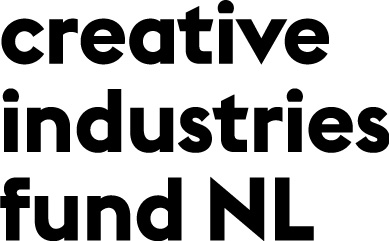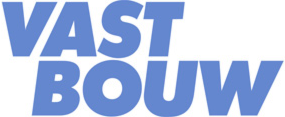
18 June 2017
13:00 - 17:30, Het Schip Museum, tower room
Migration and mobility in cities in the West
Crimson architectural historians + ISHF research team
About
In 2050, 2/3 of the global population (equivalent to 8 billion people) are expected to live in cities. This is a result of a global trend of people moving from the countryside to metropolitan areas. All over the world, cities are challenged to accommodate newcomers. This not only contributes to the current refugee crisis in Europe, but also to the preexisting urgent need for temporary accommodation for migrant workers and an increasing demand for flexible housing. The influx of individuals to cities is expected to be a permanent phenomenon that requires a permanent strategy.
Currently, two research projects on this topic are being carried out and will be presented at the International Social Housing Festival in one event. ‘A City of comings and goings’ by Crimson architectural historians and ‘Amsterdam Arrivals’ by the ISHF research team.
Itinerary
Introduction (13.00 – 13.15)
13.00 – 13.05: Welcome & introduction of both programs
13.05 – 13.15: Teaser of second program Amsterdam Arrivals
Part I: A City of Comings and Goings (13.15 – 15.30)
13.15 – 13.35: Introduction Cities of Comings & Goings by Crimson
13.35 – 14.45: Presentations on Aarhus, London, Prato and Vienna
14.45 – 15.30: Panel discussion moderated by Christine de Baan
Break (15.30 – 16.00)
Part II: Amsterdam Arrivals (16.00 – 17.30)
16:00 – 16:15: Introduction theme ‘Amsterdam Arrivals’
16:15 – 16:20: Presentation/pitch Lorien Beijaert and Arna Mačkić
16:20 – 16:35: Panel discussion
16:35 – 16:40: Presentation/pitch Olv Klijn and Lada Hršak
16:40 – 16:55: Panel discussion
16:55 – 17:00: Presentation/pitch Wouter Veldhuis
17:00 – 17:15: Panel discussion
17:15 – 17:30: Closing remarks
Part 1: A City of Comings and Goings
The way countries handle the current refugee crisis and the locations where refugees are being housed reveals a wider problem concerning the flexibility and absorption capacity of cities. Isolating the refugee crisis as a temporary situation ignores the permanence and regularity of migration. Our cities are increasingly defined by the dynamics of temporary inhabitants: expats, refugees, international students, and migrant workers moving in and out. How may cities better adapt to a phenomenon that has always shaped and defined urban development and will continue to do so in the future?
This event is part of a larger research project and will incorporate the presentation of the first set of results. This is meant to facilitate and stimulate the exchange of knowledge, and more specifically, to create a common action agenda that will help prepare towns, cities, and regions for structural migration.
The event will start with an introductory presentation by Crimson. This will be followed by four presentations on Aarhus (Denmark), Prato (Italy), Vienna (Austria) and London (UK), in which local researchers will discuss the current migration challenges in these cities and the specific spatial solutions that have been offered. The event will conclude with a panel discussion, in which professionals from different fields are asked to react to the presentations and consider what lessons can be learned to help the Dutch situation. The panel will also reflect on what migration means for cities more generally, and how architecture and planning can contribute to migration challenges.
Speakers
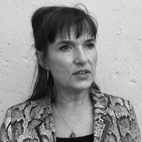 Michelle Provoost is an architectural historian specializing in urban planning history, postwar architecture, and contemporary urban development. She co-founded the office of Crimson Architectural Historians in 1994, which has subsequently been engaged in a large number of research and design projects in the fields of urban planning, architecture, and art. Since 2008, Dr. Provoost has served as Director of the International New Town Institute (INTI) in Almere, the Netherlands. Under her direction, INTI has grown into an internationally recognized center for education and research relating to new towns/ planned communities.
Michelle Provoost is an architectural historian specializing in urban planning history, postwar architecture, and contemporary urban development. She co-founded the office of Crimson Architectural Historians in 1994, which has subsequently been engaged in a large number of research and design projects in the fields of urban planning, architecture, and art. Since 2008, Dr. Provoost has served as Director of the International New Town Institute (INTI) in Almere, the Netherlands. Under her direction, INTI has grown into an internationally recognized center for education and research relating to new towns/ planned communities.
 Annuska Pronkhorst is an architectural historian and partner of Crimson Architectural Historians. With Crimson she works on several projects in the field of urban planning and architecture, combining historical research and project development. Current projects are amongst others the research projects ‘A City of Comings and Goings’, ‘New Towns on the Cold War Frontier’ and ‘Monuments and Cultural Heritage as a catalyst for social area development’. In 2007-2013 she worked as Program Manager for Hofbogen BV and was responsible for the physical and conceptual redevelopment of the 19th century elevated train line running through the centre of Rotterdam and connecting it to its outskirts. Before she worked as project leader of WiMBY! an urban renewal project in Rotterdam/Hoogvliet and the International Architecture Biennale Rotterdam.
Annuska Pronkhorst is an architectural historian and partner of Crimson Architectural Historians. With Crimson she works on several projects in the field of urban planning and architecture, combining historical research and project development. Current projects are amongst others the research projects ‘A City of Comings and Goings’, ‘New Towns on the Cold War Frontier’ and ‘Monuments and Cultural Heritage as a catalyst for social area development’. In 2007-2013 she worked as Program Manager for Hofbogen BV and was responsible for the physical and conceptual redevelopment of the 19th century elevated train line running through the centre of Rotterdam and connecting it to its outskirts. Before she worked as project leader of WiMBY! an urban renewal project in Rotterdam/Hoogvliet and the International Architecture Biennale Rotterdam.
 Justinien Tribillon is an urbanist, writer and editor. Born and bred in Paris, he is based in London. Justinien explores cities with ideas, concepts, images, quantitative and qualitative data. He works with architecture practices, municipalities and research centres in Paris and London. Justinien writes for publications such as MONU and The Guardian, he is a co-founder and editor of Migrant Journal. Trained in social sciences, urban strategies and design, Justinien holds a Master’s degree in Urban and Regional Strategies from Sciences Po and an MSc in City Design and Social Science from the London School of Economics. Justinien is also a PhD candidate researching the divide Paris/Banlieue at The Bartlett, University College London where he also teaches urban studies.
Justinien Tribillon is an urbanist, writer and editor. Born and bred in Paris, he is based in London. Justinien explores cities with ideas, concepts, images, quantitative and qualitative data. He works with architecture practices, municipalities and research centres in Paris and London. Justinien writes for publications such as MONU and The Guardian, he is a co-founder and editor of Migrant Journal. Trained in social sciences, urban strategies and design, Justinien holds a Master’s degree in Urban and Regional Strategies from Sciences Po and an MSc in City Design and Social Science from the London School of Economics. Justinien is also a PhD candidate researching the divide Paris/Banlieue at The Bartlett, University College London where he also teaches urban studies.

Massimo Bressan is an urban anthropologist and partner of IRIS Ricerche, a private company active in social, territorial and economic research based in Prato (Italy). With IRIS he works on several projects of social and economic impact evaluation of public investments programs in European Regions combining field and desk research. His specialization includes urban and migration studies often conducted in international research groups. In this field he has recently co-edited the book ‘Chinese migration to Europe. Prato, Italy, and Beyond’ and has been the editor of a special issue on neighbourhood transformations for the online journal Cambio. Further, he has co-authored the book ‘Zone di transizione’ / ‘Transition Zones’ and is publishing an article for the journal of Current Anthropology.

Christoph Reinprecht holds a position as professor of sociology at the University of Vienna where he is also a speaker of the Research Network on Migration, Citizenship and Belonging at the Faculty of Social Sciences. He is an associated scientist at the the Center for Housing Research at the Laboratoire Architecture Ville Urbanisme Environnement in Paris, and member of the European Network of Housing Research where he is co-coordinating the working group ‘Social Housing and Globalization.’ He is a specialist in the fields of migration and urban studies, social inequality and political sociology. Currently he is working on a project called ‘Sociology of Vienna,’ which is based on numerous empirical and theoretical studies on social dynamics in neighborhoods, and specifically interested in social change in social and municipal housing.

Signe Sophie Bøggild is an art historian educated at University of Copenhagen and Goldsmiths, University of London. She does research, gives lectures and publishes on post-war new towns and urbanism in Denmark and abroad. Until recently, she was affiliated to Landscape Architecture and Planning, University of Copenhagen, currently works as curator of Copenhagen Architecture Festival and collaborates with Crimson Architectural Historians as co-author of their book ‘New Towns at the Cold War Frontier.’ Recently, she has published on ‘green heritage’ in the NORDIC Journal of Architecture and in Nordes 2015: Design Ecologies.
Research project ‘A city of comings and goings’ is supported by.
Part 2: Amsterdam Arrivals
The research project Amsterdam Arrivals, set up as part of the International Social Housing Festival project, explores the ‘arrival space’ of the city of Amsterdam. Arrival space is defined as a directly accessible accommodation for newcomers to Amsterdam, which may include refugees, workers, students, etc.
How accessible is the Amsterdam housing stock to newcomers? What properties does this arrival space have? And what do these migrants need? Can we conceive of new types of accommodation for newcomers? What strategies will make Amsterdam permanently open to newcomers?
At this meeting, the results of the research carried out by three teams will be presented in a public meeting. There will be a discussion on how the proposed strategies may be implemented in Amsterdam.
Research project ‘Amsterdam Arrivals’ is supported by the Creative Industries Fund NL.
Speakers
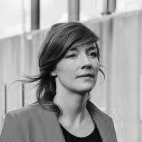
 Lorien Beijaert and Arna Mačkić (Studio L A) For L A, the practice of architecture is a device through which to question societal issues and phenomena, and to place them in renewed perspectives. Our projects often relate to the subject of ‘collective identity’. Self-initiated projects and spatial interventions arise from thorough research in which we cooperate with specialists from various professional fields. Our spatial designs do not aspire to be off-the-shelf structures, but are allowed to cause friction. We apply architecture as an experimental space, in which we investigate societal challenges through spatial models and their users.
Lorien Beijaert and Arna Mačkić (Studio L A) For L A, the practice of architecture is a device through which to question societal issues and phenomena, and to place them in renewed perspectives. Our projects often relate to the subject of ‘collective identity’. Self-initiated projects and spatial interventions arise from thorough research in which we cooperate with specialists from various professional fields. Our spatial designs do not aspire to be off-the-shelf structures, but are allowed to cause friction. We apply architecture as an experimental space, in which we investigate societal challenges through spatial models and their users.
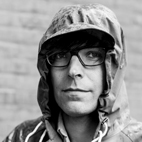 Olv Klijn is founding partner and Principal at FABRICations, an award winning design practice involved in architecture, urbanism and regional strategies. Founded in 2007 with Eric Frijters, the office’s work focuses on the spatial impact of a socially, economically and ecologically better environment. In combination, Olv Klijn is also Assistant Professor at the chair of Dwelling at the Technical University Delft. He studied architecture at the Eindhoven University of Technology and graduated Cum Laude. As an artist in residence Klijn studied the impact of current urbanization patterns at the American West Coast stayed at the Banff Centre in Canada. Klijn is (co)author of several books such as ‘VMX Agenda’, ’10 x Den Bosch’, ‘Station Centraal’, ‘Architect by accident’ and ‘The making of …’ and published in various journals. In 2007 he founded FABRICations together with Eric Frijters and as of then involved in the design and research of architecture, urbanism and regional strategies. In 2010 they won the Prix de Rome, the price for architects up to 35 years. In 2011 Klijn was recognized as one of the 40 emerging European architects under 40 years old. One year later he was nominated for the Iakov Chernikhov International Architecture Prize ‘for designers, that stands in the field experiment with innovative architecture, education and research in architecture and urbanism.’
Olv Klijn is founding partner and Principal at FABRICations, an award winning design practice involved in architecture, urbanism and regional strategies. Founded in 2007 with Eric Frijters, the office’s work focuses on the spatial impact of a socially, economically and ecologically better environment. In combination, Olv Klijn is also Assistant Professor at the chair of Dwelling at the Technical University Delft. He studied architecture at the Eindhoven University of Technology and graduated Cum Laude. As an artist in residence Klijn studied the impact of current urbanization patterns at the American West Coast stayed at the Banff Centre in Canada. Klijn is (co)author of several books such as ‘VMX Agenda’, ’10 x Den Bosch’, ‘Station Centraal’, ‘Architect by accident’ and ‘The making of …’ and published in various journals. In 2007 he founded FABRICations together with Eric Frijters and as of then involved in the design and research of architecture, urbanism and regional strategies. In 2010 they won the Prix de Rome, the price for architects up to 35 years. In 2011 Klijn was recognized as one of the 40 emerging European architects under 40 years old. One year later he was nominated for the Iakov Chernikhov International Architecture Prize ‘for designers, that stands in the field experiment with innovative architecture, education and research in architecture and urbanism.’
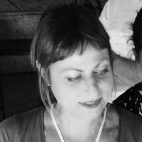 Lada Hršak Bureau LADA is a network – based design practice based in Amsterdam. Established in 2010 by architect Lada Hršak, the studio focuses attention to the inclusive aspects of production of space and the potential of / for the architectural intervention on a particular site.
Lada Hršak Bureau LADA is a network – based design practice based in Amsterdam. Established in 2010 by architect Lada Hršak, the studio focuses attention to the inclusive aspects of production of space and the potential of / for the architectural intervention on a particular site.
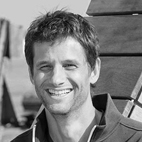 Wouter Veldhuis is urbanist, architect, and director of MUST Ubanism. As core member of Stad Forum he advises the Municipality of Amsterdam. And Veldhuis is heading the Master track of Urbanism at the Rotterdam Academy of Architecture
Wouter Veldhuis is urbanist, architect, and director of MUST Ubanism. As core member of Stad Forum he advises the Municipality of Amsterdam. And Veldhuis is heading the Master track of Urbanism at the Rotterdam Academy of Architecture
Panel consists of:
Francine Houben (Mecanoo)
Achmed Baadoud (Stadsdeel Nieuw-West)
Perry Hoetjes (Stadgenoot)
Cihan Bugdaci (Gentlemen A.R.T.)
Haiko Meijer (Onix)
Payman Hanifi-Moghaddam (Seedz Rotterdam)
Goof van Dormolen (VluchtelingenWerk Nederland)
Desirée Uitzetter (BPD)
Hassnae Bouazza (journaliste/programmamaker)
Research project ‘Amsterdam Arrivals’ is supported by:
Organizer

Crimson Architectural Historians is a team made up of Ewout Dorman, Annuska Pronkhorst, Michelle Provoost, Simone Rots, Wouter Vanstiphout and Cassandra Wilkins. Since 1994, when Crimson became part of the planning team for the extension of Utrecht’s ‘Leidsche Rijn’ neighbourhood, the office has developed a hybrid ethos taking the contemporary city as its object. Crimson designs for the city, researches it, writes texts and books about it, shows it in exhibitions and works of art,educates about it, gives advice on it and makes policies for it.
Details
Date, time: Sunday 18 June, 13:00-17:30 hrs
Location: Museum Het Schip, Tower room
Cost: free
(picture by Lada Hrsak)
Please register for the event using the form at the bottom of this page.
For any inquiries regarding this event contact Eline Splinter: e.splinter@crimsonweb.org




